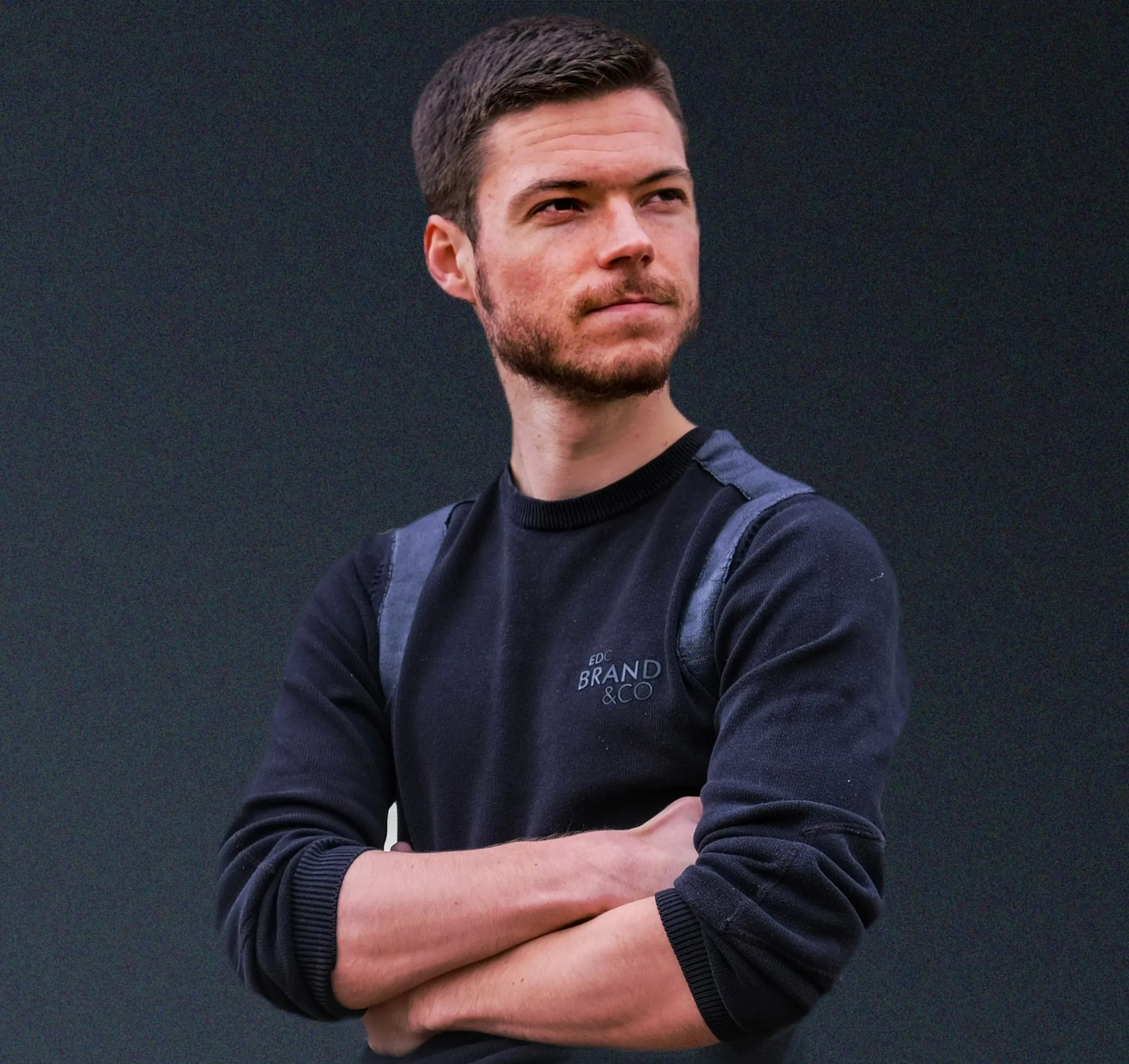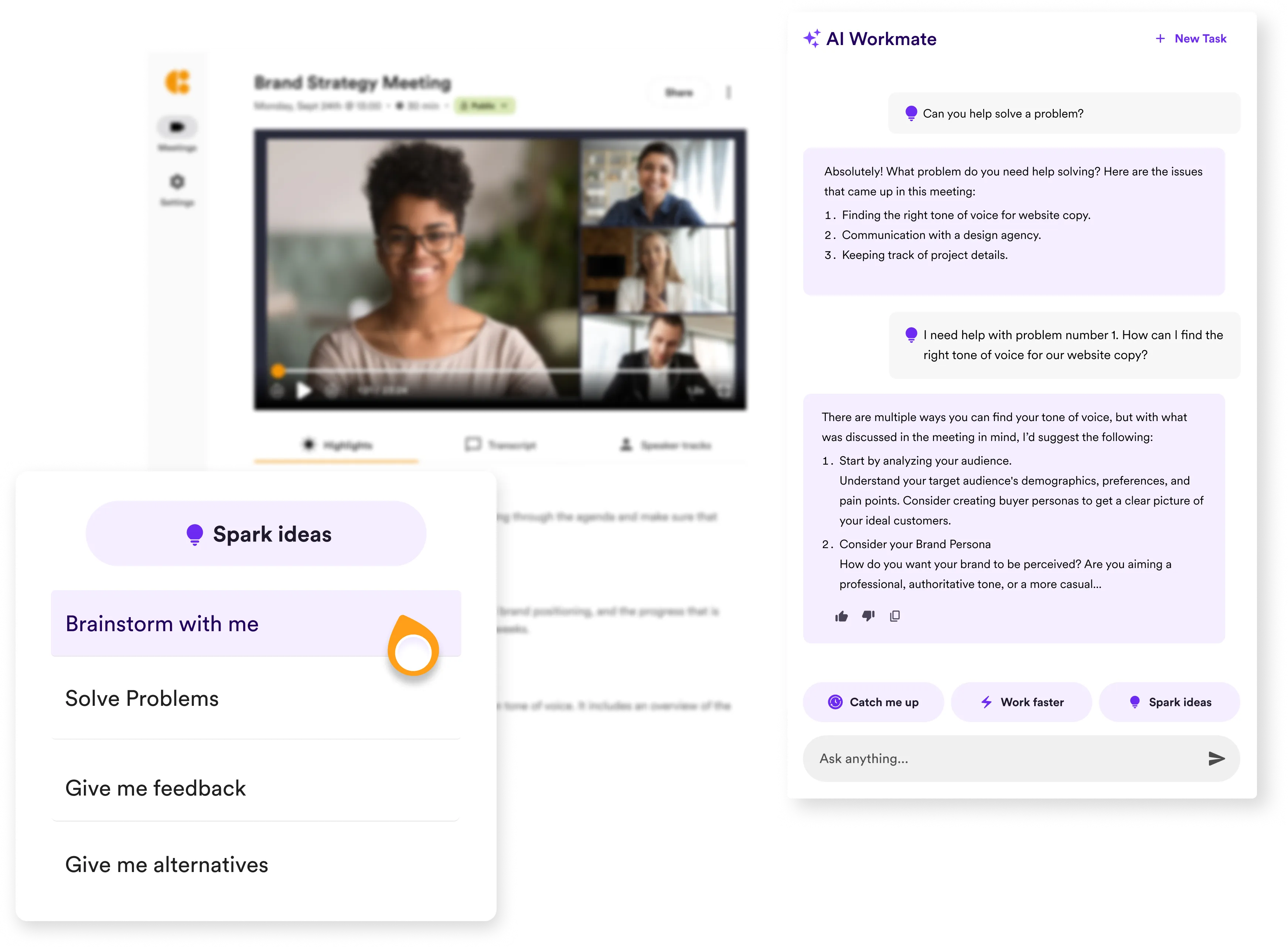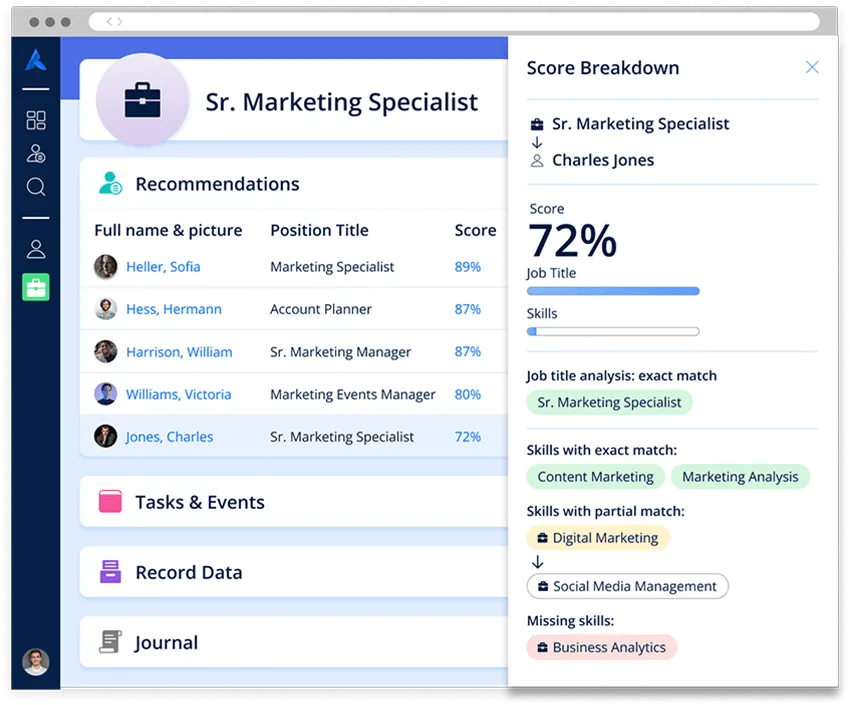Interviewer and Interviewee : The Differences

In an interview, there's always one interviewer (at least) and one interviewee.
Each role has its own responsibilities, goals and demands that you should know.
In this article, we’ll explore the differences between interviewers and interviewees, highlight the traits that make each successful, and explain how to conduct interviews the right way.
What is an Interviewee
In an interview setting, the interviewee is the person sitting across the table, responding to questions. They are the job candidate, hoping to showcase their abilities and convince the interviewer they are the right fit for the position.
As an interviewee, your aim is to provide information that aligns with what the employer is looking for. Think of yourself as a storyteller—you need to explain who you are and what you bring to the table in an engaging way.
What is an Interviewer
The interviewer is the person leading the interview process. As an interviewer, they represent the organization, and it’s their responsibility to ensure that they make the best hiring decision based on the available talent.
Their role is to ask questions, evaluate responses, and determine if the candidate is a good fit for the position and the company.
Key Differences Between Interviewer and Interviewee

The key difference between an interviewer and an interviewee lies in their roles during the interview process. The interviewer is the one asking the questions, while the interviewee is the one answering them. However, their objectives, responsibilities, and approaches are also fundamentally different :
- Role and Objective: The interviewer's role is to assess and evaluate, while the interviewee's role is to showcase their skills and experience. The interviewer’s objective is to gather enough information to determine if the candidate is the right fit for the job. In contrast, the interviewee’s objective is to communicate why they are the ideal candidate for the position.
- Preparation: Both the interviewer and the interviewee need to prepare thoroughly, but their focus is different. The interviewer needs to prepare questions, understand the role requirements, and familiarize themselves with the candidate’s resume. The interviewee, on the other hand, needs to research the company, understand the role, and practice answering potential questions.
- Control of the Conversation: The interviewer leads and controls the flow of the conversation. They decide what topics to explore, when to move on, and how to guide the interview to gather the information they need. The interviewee, however, follows the interviewer's lead, focusing on providing insightful and relevant answers.
- Evaluation vs. Presentation: The interviewer is in an evaluative position. They are assessing whether the candidate is suitable based on skills, cultural fit, and attitude. The interviewee is in a presentational position. They are presenting their qualifications, sharing their experiences, and making a case for why they should be chosen for the role.
Good Interviewer vs. Good Interviewee

A good interviewer and a good interviewee each have distinct traits that contribute to a successful interview :
Traits of a Good Interviewer:
- Preparation: A good interviewer comes to the interview fully prepared. They understand the role, have read the candidate’s resume, and have prepared relevant questions. This preparation helps ensure that the interview runs smoothly and that the interviewer can effectively assess the candidate.
- Active Listening: Good interviewers are excellent listeners. They don’t just follow a script—they listen to the answers and ask follow-up questions to dig deeper into key points. This helps uncover more detailed and insightful information about the candidate.
- Objectivity: A good interviewer remains fair and unbiased throughout the process. They avoid making assumptions and assess each candidate based on their skills, experiences, and fit for the role.
- Creating a Comfortable Environment: Making the interviewee feel at ease is crucial. A good interviewer knows how to create an environment where candidates feel comfortable enough to express themselves genuinely. This involves a friendly demeanor, open body language, and an approachable tone.
Traits of a Good Interviewee:
- Thorough Preparation: A good interviewee takes time to research the company and understand the role they are applying for. They anticipate the questions they might be asked and practice their responses, especially focusing on how they can add value to the company.
- Clear Communication: Good interviewees communicate their thoughts clearly and concisely. They know how to present their experiences effectively, using techniques like the STAR method to provide structured answers that highlight their skills and accomplishments.
- Enthusiasm and Authenticity: A good interviewee shows enthusiasm for the role and the company. They express genuine interest and are authentic in their responses. This helps them stand out as someone who not only has the skills but also genuinely wants the opportunity.
- Adaptability: Interviews can take unexpected turns, and good interviewees know how to adapt. Whether it's handling a tough question or adjusting to a new topic, they stay calm and respond thoughtfully.
Conducting Interviews the Right Way: Noota
.png)
Conducting interviews effectively involves managing a lot of details—taking notes, evaluating responses, and keeping track of key points. Noota’s AI meeting assistant is designed to streamline the entire interview process :
- Automatic Recording & Transcription: Noota automatically records and transcribes interviews in real-time. Instead of scribbling down notes during the conversation, the tool captures every word, providing an accurate transcription you can refer to later.
- Structured Summaries: After each interview, Noota generates structured summaries that highlight the key points of the conversation. Instead of combing through pages of raw notes, you get a concise, organized overview of the most important takeaways.
- Objective Evaluation: Noota also helps with objective evaluation. It uses structured methods like STAR (Situation, Task, Action, Result) to objectively evaluate candidate responses. You can customize evaluation templates to match your hiring criteria, ensuring consistency across all interviews.
Want to have more engaging and productive conversation from your interviews ? Try Noota for free now.
Leverage your Interview Data
AI interview notes, scorecard, follow-up, ATS integration, and more...
Related articles

Forget note-taking and
try Noota now
FAQ
In the first case, you can directly activate recording as soon as you join a videoconference.
In the second case, you can add a bot to your videoconference, which will record everything.
Noota also enables you to translate your files into over 30 languages.

.svg)
.svg)

.webp)

.png)


.svg)
